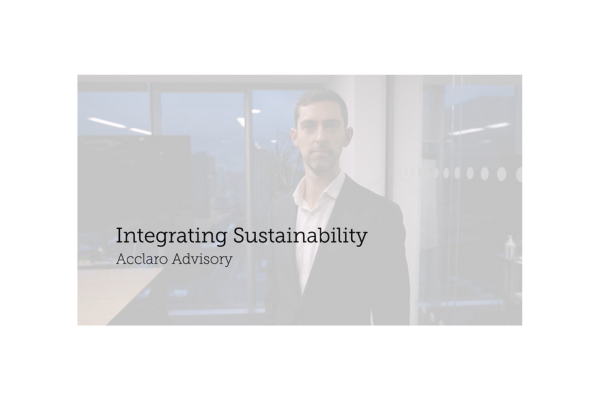About the SFMI
How our assessments are a credible benchmark for the FM sector

The Sustainable Facilities Management Index (SFMI) is the only assessment developed specifically to understand and benchmark the ESG performance of the Facilities Management sector, providing a single comprehensive measure.
Developed as a framework in 2013, the Index provides a robust and transparent sustainability assessment tailored for the FM sector. The results are compiled annually and can be applied to both internal FM functions and FM outsourcing organisations.
The intent of the Index is to raise the performance and delivery of sustainability by showcasing achievement and highlighting excellence. It is also intended to stimulate a positive change within the sector, through both internal performance and external perception.
The SFMI provides the only FM sector-specific tool for FM providers to build their sustainability credentials. We offer a pathway of continual annual improvement based on annual assessments and an awards programme.
Independent Audit
Partner companies receive an objective, external assessment, offering peace of mind from the potential risk of green-washing. This means that when an FM provider actively participates in the SFMI, it gains third-party reassurance for stakeholders of the ability to embed sustainability into service provision. This allows FM providers to provide confidence and transparency to stakeholders that their ESG-based business reputation will remain intact.
The Sustainable FM Index provides an opportunity to benchmark our service delivery partners against sustainable performance and delivery targets. This is invaluable in our drive towards a low carbon economy, reduced carbon footprint, and sustainable building operations.
UBS
Since the SFMI uses external assessment based on interviews, rather than relying upon self-assessment, the results provide an accurate reflection of an organisation’s actual operations and inform a summary review that is indicative of the sector overall. Its findings and recommendations are regularly communicated through key publications for the sector including RICS, IWFM, I-FM, and Facilities Management Journal.
Size of Sector Assessed
The SFMI assess and partner with companies making up approximately 15% of the UK FM market spend1 . With several high profile Client Partners involved, the total UK presence is nearer to 20%. The SFMI assessments and its rankings are therefore a reliable indicator of the UK FM sector’s maturity in sustainability, both in its operations and the services it provides.
Criteria Used for Assessments
The 23 criteria of the SFMI are captured within three broad categories – Environment, Social and Governance – with scores awarded from 0 to 5 for each. Scoring 5 is about not just demonstrating a systemic approach to ESG practices within the organisation, but also in the services being provided to customers, signifying a rounded picture of industry practices.
The table below shows the typical requirements for the Environment, Social and Governance categories at a low, mid and high score.
| Score | Environment | Social | Governance |
|---|---|---|---|
| 1 | Public disclosures, but limited evidence of practices being in place | Corporate level aspirations are provided with limited stakeholders involved | Frameworks and policies, but not co-ordinated or demonstrating leadership |
| 3 | Predominantly internal only systems and processes. Key data identified and used | Active engagement with stakeholders (employees, suppliers) with two -way dialogue | Management take an active role, but limited to the information provided |
| 5 | Demonstrates knowledge based client engagement and leadership to reduce impacts at source | External verification of achievements with measurements focussed upon the need of stakeholders | Budgets in place to ensure delivery of c-level and contract sustainability delivery. Clear evidence based disclosure |
As an integrated approach, the SFMI requires incorporation of sustainability into the culture, management and reporting of an organisation and the services being provided. As such, the SFMI provides a credible and robust framework for understanding the maturity of not just FM providers but the sector as a whole.
Our Partner Offer
As regulation moves from disclosure to including behaviours, joining the SFMI helps partners to align their reporting through independent sustainability assessment, as well as collaborating with other partners to share best practice and thought leadership.

Assessments
A credible single assessment score for comparable measure and benchmarking against other FM companies, along with a detailed roadmap of how FMs embed sustainability within their organisation.

Questions Answered
What does benchmarking mean in real terms?
SFMI benchmarking refers to the process of comparing the performance of FM companies to their peers in the industry using the Sustainable Facility Management Initiative (SFMI) framework. This framework is aligned with the global criteria of ESG leadership to help measure and manage the environmental and social effects of the companies. The results of this benchmarking exercise help companies identify areas where they can improve their environmental and social performance and develop strategies to do so.
How do we determine the credibility of benchmarking?
We have built a comprehensive framework that helps to capture high quality data in a systematic and detailed manner. Moreover, collected data is structured and formatted so as to enable comparative scoring of the companies in a consistent way. Each year the scoring framework is reviewed and adjusted to take account of both emerging trends, prevailing issues and maturing standards of sustainability in the sector, to ensure that it remains at the forefront of best practice.
What does the assessment cover?
We assess performance across 23 of the most important ESG criteria, such as ecology, energy management, employee health and safety, diversity etc. Most criteria are common with other ESG reporting platforms, therefore its findings also support participation in global reporting initiatives and are readily understood by stakeholders in other sectors.
The output therefore provides for a detailed assessment of an organisation’s performance which can be used to help establish and deliver a roadmap for improvement.
How do we convert the outputs into customer facing benefits?
Having performed the SFMI assessment not only allows the company to identify where and how they can improve or how they compare to peers. In addition, it helps to inform customer-facing benefits that highlight their commitment to sustainability and help build customer loyalty. To give a few examples, the information assessed can be used in sales materials, websites, and conferences, to upskill the teams, and to be directly incorporated into services delivered to customers.
What level of rigour is applied to the gradings?
We work with major FM companies, allowing us to collect exemplary insights to compare activities and improvements among the SFMI partner community. Our evaluation results and awards for the best performing and most improved partners come from the systematic approach we have developed to understanding sustainability performance across the FM sector. Results are sought to be delivered systematically across the business, rather than piecemeal, and therefore scores represent how well this has been achieved. We provide case study examples of good practice and upper levels are also recognised but marked as additional.
How do we use the knowledge gained to drive maturity and evolve?
There are a variety of options for how attained information can help companies grow their ESG leadership, depending on their culture and level of ambition. Overall, the gained knowledge will help improve the environmental and social outcomes of the company as well as drive innovation, as SFMI partners are better able to identify emerging trends and adapt to changing market conditions. Another example is enhanced financial performance, as SFMI partners are better able to manage risks, attract customers, retain talent and access capital. The SFMI also helps companies to build trust with stakeholders, improve internal knowledge development and transfer, improve risk management, and drive continuous improvement.
Find out more about the SFMI
To find out more about our assessments, our benchmarking and becoming a partner, speak to one of our experts.